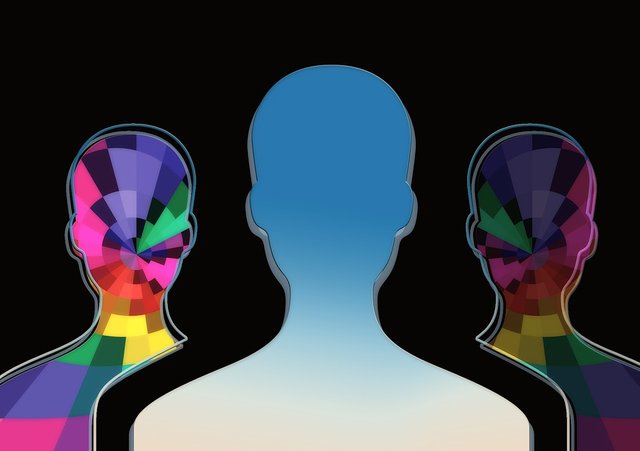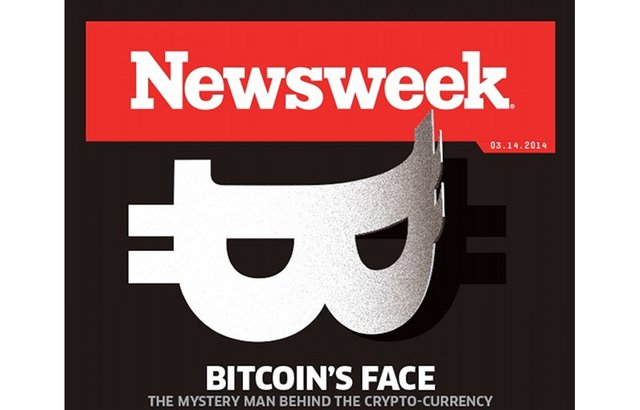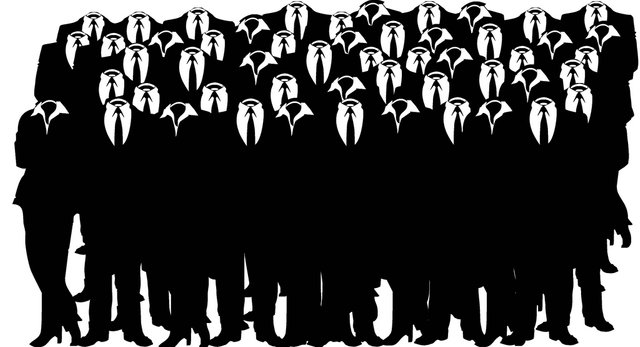Trying to be anonymous on the Internet (and Steemit)

I just finished reading a post of honeyscribe which says that although she had credentials before joining Steemit, she didn't really want to use them because she has stalker issues and things like that.
Apparently, she reused some of her old work and that made her vulnerable to getting "exposed" - as republished information can get linked. Her lack of technical understanding made it very easy.
This brings me to the next point, which is what one should know, when trying to be anonymous while posting on the Internet. Obviously this applies to Steemit even more - because the information is blockchained and you can expect it will remain there forever.
There are three main things to consider:
1. There is no anonymity on the Internet
Everything you do is recorded somewhere. Some times, your entire traffic is caught and analyzed by your government's intelligence services, or by the intelligence services of other countries.
Additionally, every time you are on the Internet, you are using an IP address. This IP address may not mean much to other individuals on the Internet, but the authorities can match the IP to the user.
A user can go to great lengths to hide their tracks, by rerouting his/her traffic, but in reality it's just a gamble. It's not certain this method even works against sophisticated adversaries like governments.
On a more casual level that involve interacting with others, and as long as these other people don't have access to law enforcement, intelligence agencies or your Internet provider, then for all intents and purposes you can appear anonymous to them. However you are never really anonymous to everyone.

For example, Satoshi Nakamoto (the inventor of Bitcoin) might be anonymous or pseudonymous to me but that doesn't necessarily mean that the NSA doesn't know his identity.
2. Posting things that can be immediately linked back to you
Let's say you had an old post of yours written in your personal blog, two years ago, and now wanted to repost it on Steemit, slightly changed. You removed a couple of names, cut a few paragraphs etc etc, and then post it.
At that point, even if you didn't really realize it, a connection was made with your personal blog, and by extension, your identity. If anyone googled a few of the phrases used on your article, they would then find your personal blog and then your identity would be revealed.
The same is true for images, videos, even rare url links that you shared once, but few other people did. Such a practice singles you out.
If you want to maintain a certain level of pseudonymity it will pretty difficult to do so by reusing old material that you posted with your name or nickname.
3. Posting virtually anything has the potential to betray your identity
When the law enforcement agent reads us our rights they say: "Anything that you say, can and will be used against you"..."Do you understand?"
This is similar.
Do you understand?
If not let me explain.
Your writing style, is the equivalent of your fingerprint. If you write little, and if what you write is more "generic", this fingerprint is "blurred". However, the more you write the more detailed this fingerprint becomes.
The things you say, your interests, your way of expressing, possible peculiarities in the way you write, the way you emphasize certain things, your emotional state and reactions, all these can be "smoking guns" in connecting you with posts you've made in other places, whether with your own name (environments like FB or Twitter), or another nickname. And this without even reusing any old material.
For the time being, (3) is a danger that is not properly being factored due to the lack of AI making the connections.
Once an AI makes these connections, say, 5-10 years into the future, then you will be identified with a high degree of certainty.
The "problem" is that advanced AI will not only be able to discern and link your identity.
It will even tell you the precise influence that other factors had on you when you wrote a post.
It will calculate the ripple impact of how your mind picked up phrases by things you read or saw, and repeated it / repackaged it.
It will be also be able to determine bigger "ripples" that originate from your influences, thus betraying artistic influences, ideologies, affiliations - even in things that you've never mentioned anywhere.
Ultimately, it will be able to reconstruct our life's history, experiences, influences, skills, intelligence, psychological make-up etc. And based on these, it will also be able to generate future predictions about us, with uncanny precision.
If all these sound too far fetched, or dystopian, keep in mind that I'm just scratching the surface. For example an employer will only need to know your name to see if you are suitable for something. Your resume will be useless in comparison with the information that are revealed through your online interactions.
One would think that our online persona, being different than our real persona, would not be an accurate indicator, but all these will be accounted for through persona coherence indexes (automated by the AI - it's not going to be done by human programmers) which will reveal even more information through our efforts to project something that we feel we aren't: This will in turn betray our frame of mind, perceived deficiencies, possible lack of social interaction and recognition and our desire to achieve the same through the Internet, etc etc.
But, again, I'm just scratching the surface here. The possibilities are endless.
"What you are describing is f*cked up! Is there any way around this?"
...Wait... It gets better: When the above AI is perfected, it will first be used by the Intelligence Agencies. These will know everything while we will be living in ignorant bliss. Paradoxically, these agencies will not be using this software to reveal our identity: They'll use it to learn more about us (profiling for certain characteristics that they find "threatening" to their status quo).
By the time they'll have perfected the in-depth AI analysis software and trying to take it to the next level (of using this information to better manipulate individuals), privateers will start coming online with their own "find the match" software - which will be far less sophisticated in comparison (until, it too, evolves into greater sophistication).
At that point, and as past identities are revealed, the public will be alarmed. There will even be cases of linking criminals with their criminal activity. Once AI will start solving ...criminal cases (and getting TV exposure for that), or affect the way people can access the job market because the AI determines they are stupid, lazy, irresponsible, or even talk about their employers online etc etc, at that point scrambling AI will have to be developed - because people will now be scared of the potential of this technology.
The Internet doppleganger and its effect in "mixing" technology
There is a real-life phenomenon where some people look identical despite being genetically different. Although the chances for this happening are slim, some people have actually met other people who look precisely like them.

During the development of the first publicly used AI "detective" software that tries to match identities through people's writings, a new realization will be born: Just like people have body or facial patterns that are visually similar, people also tend to exhibit expression patterns which can be classified as similar or extremely similar.
Later AI (or AI controlled by governments) will be able to detect the subtle differences but before this reaches the mainstream, the Internet-doppleganger effect will inspire the creation of AI that will try to capitalize on this in order to disorient the AI-matching software.
A simple word spinning (like translating the content to another language and back to one's own) will more often than not raise flags of someone who is trying to hide their identity on purpose, while the idea to emulate another style, and especially the more popular/typical expression styles, will in turn prove far better as a tool to protect one's privacy - because it will throw off the AI-matching software. This emulation can be used through a "spinning" software that tries to do just that.
Ultimately, the best scrambling AI will also have very advanced capabilities in finding people through expression-matches. By using the later it will be able to evaluate candidate spins for expressions and writing styles to avoid getting exposed and thus matched.
Conclusion
The Internet is anything but anonymous. It may seem like it, but it is only an illusion fueled by the lack of motivation and tools that others have to unmask you. But if they tried hard enough, or had more tools at their disposal (these will be coming online in the next decade), then one's anonymity would be dealt a swift and fatal blow.
People's assumption that what they are currently posting now will be irrelevant in the future, is extremely disconnected from reality. The significance of past posts is amplified the further we go into the future, as new tools come online to better process these materials - in ways that are currently unfathomable.
This will not not only affect people that desire to hide their true identity. It will also affect those who post under their real names, but their online posts and online interactions will betray things which were considered to be private. The assumption that public information is only what is written will be proven just that: An assumption. It will inevitably crumble by the realization that the processing of public information will beget enormous amounts of personal data which were considered to be private.
This reads a little minority report-ish. I mean that as a compliment, well done for getting important information out there in a sci-fi futuristic and kinda scary way. It's important we keep your points in mind as we continue down the rabbit hole.
Thanks :D
I've totally given up any attempt to be private and have all my personal details right alongside my articles about conspiracies, all over the internet :)
What the hell, - if it good enough for James Corbett!
The time is coming when everything will be known by the oligarchy. Sad but true.
the time is coming when they will be running through the streets searching for food with the hounds at their heels.
Thanks for the post. I think it is really important for the users like @honeyscribe to read. If there really is a need to remain anonymous, then a lot of precautions need to be taken. As you so eloquently pointed out - even with all those precautions, there is still a risk if someone wants to find you bad enough.
Exactly. And what now involves human effort to find another's tracks by trading their own time in doing so, in the future will be far more effortless due to AI automating and taking over that particular task. So the effort-barrier that exists right now to provide the illusion of anonymity will be no more.
Good lord, that's terrifying. It makes me think that I better make my fortune NOW, so I can get offline entirely in a decade, with no accounts or profiles anywhere, and just use the Internet to read the news. Yikes!
Offline users will actually be more suspect. Why did they go offline? What do they have to hide? Etc, etc.
true
Very interesting post! I hadn't thought about it all , but it makes perfect sense. In my experience with online interaction, I realised I get to know a lot more about my friends by what they post than when we spent time together at work. I agree with you. Everything we write, like, or even leave without comment, show (expose) who we are!
You could also make an AI that obfuscates your text so it becomes impossible to identify.